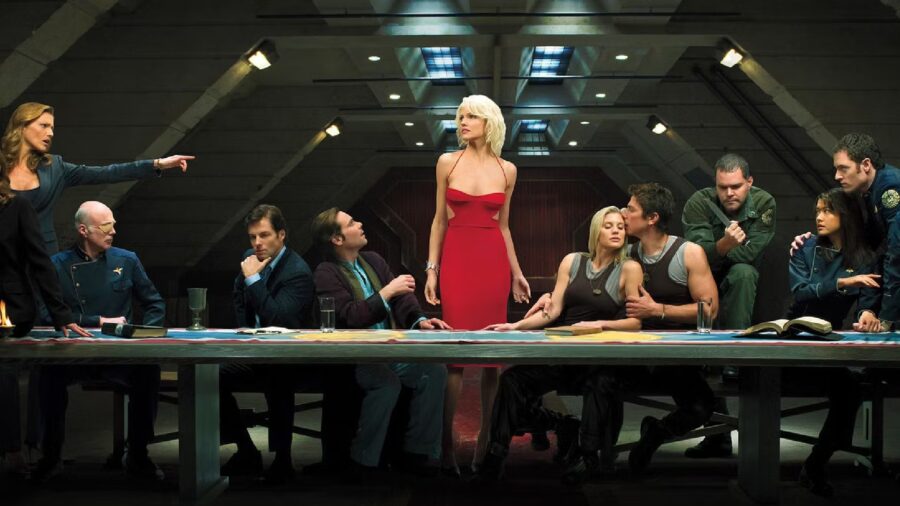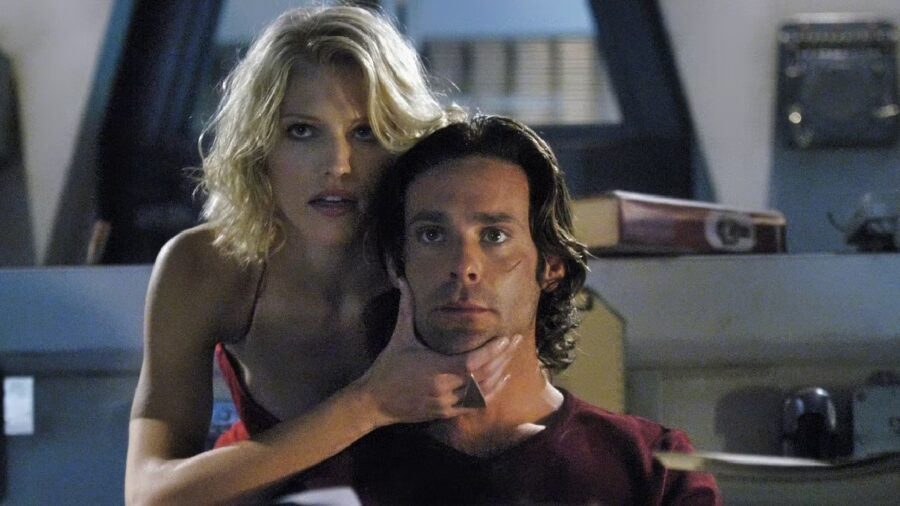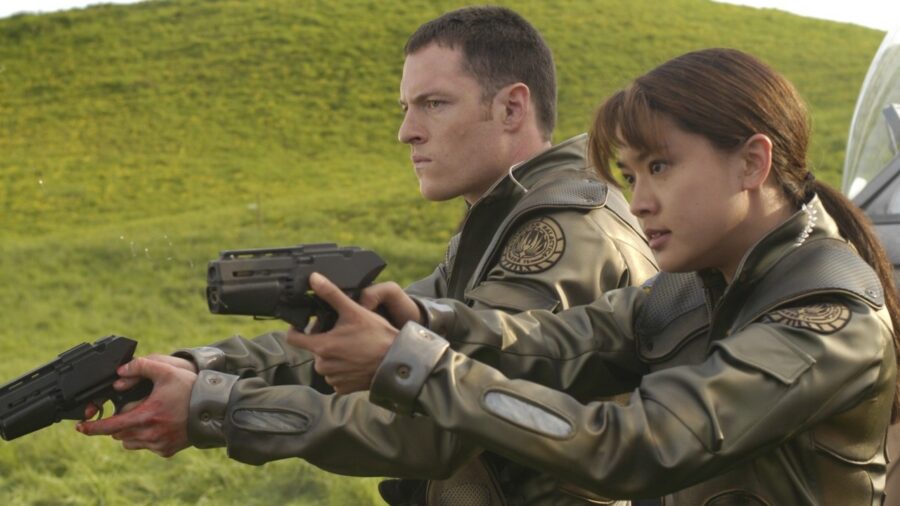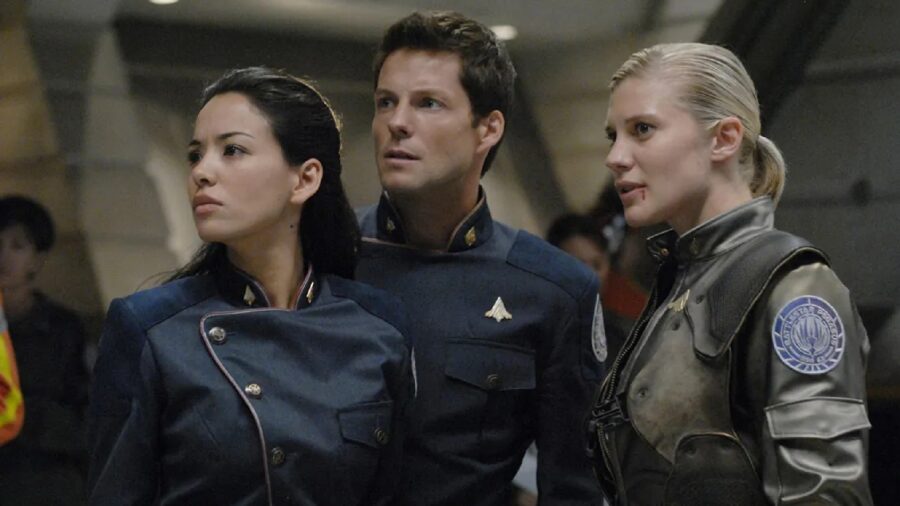Battlestar Galactica’s Most Controversial Story Sprung From One Meeting

One of the unmistakable aspects of the Battlestar Galactica reboot was that it heavily focused on religion, something that led to controversy among fans and media outlets. Later, the show experienced a different kind of controversy when these religious elements led to a bonkers series finale that didn’t necessarily make much sense and was very disappointing. Weirdly enough, all of this controversy might have been avoided if an executive hadn’t convinced the showrunner to play up the religious angle and make it clear that the Cylons were parallels for Al-Queada.
Ronald D. Moore

For any of this Battlestar Galactica controversy story to make much sense, we’re going to have to take you back to the earliest days of the show’s production. On his official SyFy blog back in the day, showrunner Ronald D. Moore described a meeting with a network executive named Michael Jackson (no, really).
The showrunner said that in the first draft of his Battlestar Galactica miniseries, “I had mentioned, almost in passing, that Number Six believed in God.”
A Larger Part Of The Show

Normally, you would expect network executives to lean away from taboo topics like religion, but Jackson wanted Battlestar Galactica to lean into this particular controversy. Moore says the exec wanted religion to be “a bigger part of the show” and for the writers “to more strongly play the Al-Queada/Cylon parallels.”
Moore was “surprised and delighted” at the idea, and he took the opportunity to make the Lords of Kobol from the original show into a “polytheistic religion” for the human colonies and gave the Cylons their own “monotheistic belief system.”
Too Much Depended On God

Depending on your own preferences and beliefs, all of Battlestar Galactica’s religious references (ranging from Tigh blurting out “Jesus” and Six even quoting the Bible) were either a fascinating addition to this sci-fi series or a source of endless controversy.
However, this emphasis on religion caused more controversy for fans regardless of faith because of the series finale. While the finale had some great moments, much of how it resolved the series hinged on confirming that God was real and not just a mythical or spiritual figure.
Starbuck

For example, we find out that Starbuck really did die before and the one that came back was an angel. Speaking of angels, we discover that the versions of Six and Baltar that appear only in the real version’s heads really were angels who had seemingly traveled from the far future into the distant past.
These angels appear to be servants of Six’s “one true God,” and all of them helped lead the remnants of humanity to Earth, where they became our most distant ancestors.
The Finale

Your mileage may vary, but what gave this Battlestar Galactica finale its controversy was mostly all the deus ex machina. The show had always used religion as a way to motivate characters and drive the story forward, and we got plenty of great tension from the constant teasing of whether God was real or not.
Then the finale casually revealed that God was real and on humanity’s side all along, which retroactively removed all of the tension from every proceeding episode.
Given how much the show focused on religion, we always assumed that Battlestar Galactica showrunner Ronald D. Moore insisted on this despite the potential controversy. Instead, all of this came from a single meeting and one executive’s casual note about the miniseries script.
Of course, if the finale is anything to go by, we can’t rule out that angels in the head of both Moore and the executive secretly helped make the series into the one we know and love.













